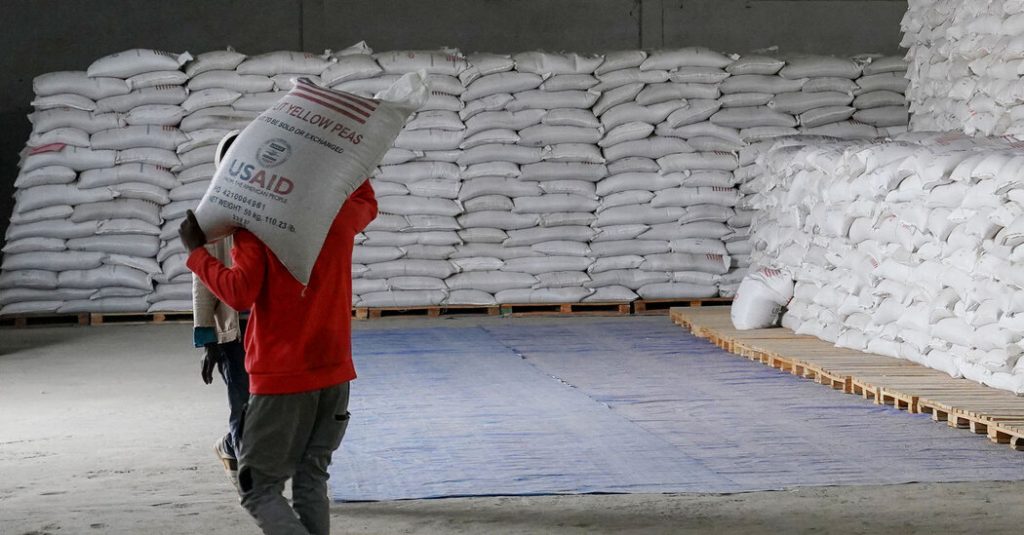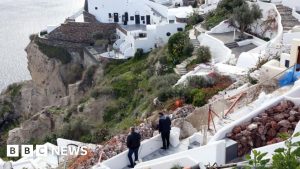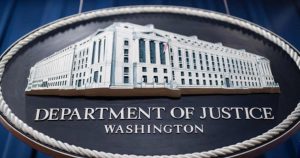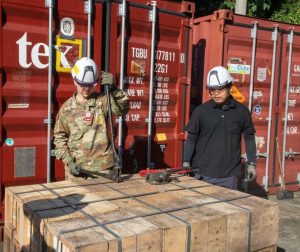We are witnessing one of the worst and most costly foreign policy blunders in U.S. history. Less than three weeks into Donald Trump’s second term, he, Elon Musk and Secretary of State Marco Rubio have halted the U.S. Agency for International Development’s aid programs around the world. In so doing, they have imperiled millions of lives, thousands of American jobs and billions of dollars of investment in American small businesses and farms while severely undermining our national security and global influence — all while authoritarians and extremists celebrate their luck.
I am shocked by the gleeful assault perpetrated by our own government against U.S.A.I.D.’s programs and the public servants who work on them. But after running the agency for four years, I am not surprised that the attacks are being cheered by Moscow and Beijing. They understand what those seeking to dismantle the agency are desperate to hide from the American people: U.S.A.I.D. has become America’s superpower in a world defined by threats that cross borders and amid growing strategic competition.
The assistance provided by U.S.A.I.D. comes in many forms, and with a budget of less than 1 percent of the U.S. government’s overall annual spending, it, alone, is no panacea for the world’s major challenges. Like all government agencies, it could be more efficient, and making it so was an effort I spearheaded during my tenure. Yet for much of the world population, the investments and work of U.S.A.I.D. make up the primary (and often only) contact with the United States.
Some investments save lives almost immediately — like the medicines dispensed to 500,000 children with H.I.V., or the nutrient-rich food manufactured in states like Rhode Island and Georgia that pulls starving children from the brink of death. Out of the $38 billion that U.S.A.I.D. spent in fiscal year 2023, nearly $20 billion was for health programs (such as those that combat malaria, tuberculosis, H.I.V./AIDS and infectious disease outbreaks) and humanitarian assistance to respond to emergencies and help stabilize war-torn regions. Other U.S.A.I.D. investments are less visible but pay dividends in the longer term, such as giving girls a chance to get an education and enter the work force, or growing local economies.
Many of the agency’s most significant investments — like helping communities rebuild after ISIS has been defeated or improving poor countries’ ability to suppress deadly infectious disease outbreaks — are immensely important for national security. And yet U.S.A.I.D. is no longer monitoring bird flu in 49 countries as it was three weeks ago; it has stopped working with at-risk youth in Central America to prevent gang violence that spurs migration; it is not cleaning up fields poisoned by Agent Orange in Vietnam; it is not eradicating polio; it is not collaborating with communities in countries like Syria, Morocco and Kazakhstan to reduce vulnerability to radicalization. The costs of dismantling these programs — and thus perpetrating these harms — will be felt for generations to come.
Of course, the agency I have just described bears no resemblance to the “radical left” and “criminal” phantom that Mr. Trump is slaying. In addition to extensive oversight from Congress, U.S.A.I.D. meticulously documented all of its programs and expenditures online. It is perhaps not a coincidence that one of the first acts of the men intent on killing the agency was to have the U.S.A.I.D. website go dark.
In fact, U.S.A.I.D. has generated vast stores of political capital in the more than 100 countries where it works, making it more likely that when the United States makes hard requests of their leaders — for example, to send peacekeepers to a war zone, to help a U.S. company enter a new market, or to extradite a criminal to the United States — it is more likely that they say yes.
That partly explains why the attacks on U.S.A.I.D.’s work from within the U.S. government are being welcomed by autocrats. During my tenure as U.S.A.I.D. administrator, we saw a significant uptick in attacks by China and Russia on the agency. Last April, the Chinese government issued an over 20-page attack on U.S.A.I.D.’s work, offering up a litany of false claims about how the United States had “acted recklessly, committed numerous misdeeds and committed numerous crimes.” In the last six months of the Biden administration, we documented more than 80 foreign propaganda campaigns targeting U.S.A.I.D.’s work in local languages in every region of the world.
After U.S.A.I.D. expanded its partnerships in the Pacific Islands in 2023, Chinese and Russian state-backed media spread disinformation before the 2024 general election in the Solomon Islands. The false claims suggested that U.S.A.I.D. planned to incite riots and orchestrate an electoral coup. Russian intelligence used a new media outlet called African Initiative to smear U.S. health programs in Africa, including those that have helped turn the tide against diseases like H.I.V. and malaria, claiming the programs were covertly carrying out biological testing.
U.S.A.I.D. has enjoyed tremendous bipartisan support in the six decades since it was created by President John F. Kennedy, and later authorized by Congress. During the previous Trump administration, efforts to significantly reduce its budget were rebuffed by Republicans who, as now, controlled the House and the Senate. Many of us in the Biden administration believed that senior national security officials on Mr. Trump’s team who saw how bold China had become in expanding its global investments and influence — and who learned the hard lesson from the pandemic that threats that cross borders can cause colossal harm — would recognize that U.S.A.I.D. had become the ground game in U.S. foreign policy.
In the briefings and materials we provided to the incoming team, we also shared how U.S.A.I.D. had expanded its activities recently in areas that are particularly threatening to China and Russia — increasing efforts to expose corruption, supporting countries as they try to renegotiate usurious debt they have incurred to China, and developing frameworks to diversify U.S. supply chains and expand critical mineral imports to the United States — which are essential to powering America’s economic future.
Secretary Rubio says there are parts of U.S.A.I.D.’s work that should be preserved, but the administration informed staff on Thursday that it plans to retain only about 290 of the 14,000 employees worldwide. U.S.A.I.D.’s American staff and their families who are being abruptly recalled from the field deserve so much better. Many deployed to the most dangerous regions in the world; more than 100 U.S.A.I.D. staff have died in the line of duty. Mr. Rubio says he has granted waivers for certain programs to continue, but the mass layoffs have meant that those programs have been paralyzed. Many of the hungry and sick people who depend on U.S.A.I.D. are at risk of dying.
Unless these cruel and immensely counterproductive actions are reversed by the administration — or Republicans in Congress join Democrats in an effort to roll them back — future generations will marvel that it wasn’t China’s actions that eroded U.S. standing and global security, paving the way for Beijing to become the partner of choice around the world. Instead, it was an American president and the billionaire he unleashed to shoot first and aim later, eliminating an institution that is a cost-effective example of what once distinguished the United States from our adversaries.








